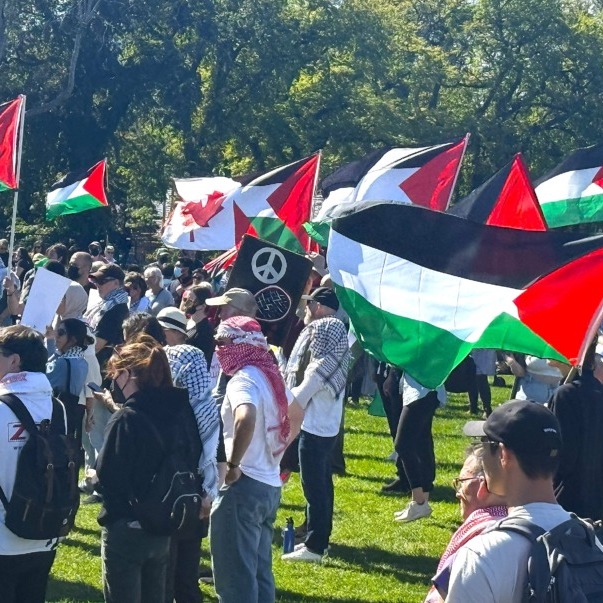
Dalhousie profs believe Gaza peace plan isn’t enough
Dal community talks about the Gaza ceasefire and peace agreement
Professors at Dalhousie University say that the newly ratified Gaza peace plan will likely fail to end the conflict between Israel and Hamas.
“[Israeli Prime Minister Benjamin Netanyahu] wants to continue the war by any means until Palestine is completely erased,” said Ajay Parasram, an international development professor at Dalhousie.
Parasram hopes the ceasefire will allow for broader conversations on the international stage, since conversations during the conflict were focused on stopping Israel’s genocide of the Palestinian people.
On Oct. 9, Israel and Hamas signed the Gaza peace plan, led by U.S. President Donald Trump, with the goal of ending Israel’s war on Gaza. The plan — which initiated the ceasefire — went into effect on Oct. 10.
On Oct. 7, 2023, Hamas-led militants attacked Israel, killing nearly 1,200 people, according to the Israeli government.
Israel attacked Gaza in retaliation, killing over 68,000 Palestinians in Gaza since Oct. 7, according to the Palestinian Ministry of Health.
Robert Huish, an international development professor at Dalhousie, said the violence will continue to escalate, despite the agreement’s ratification.
“You have war criminals on both sides who are wanted by international courts,” he said. “The only way they can remain in power is by continuing to enact violence.”
The peace plan initiated the third ceasefire since Oct. 7, 2023. Prior to this year’s Oct. 9 deal, Israel and Hamas agreed to a three-phase ceasefire agreement on Jan. 19, 2025. The agreement collapsed on March 18 when Israel launched a surprise attack on the Gaza Strip.
“It’s pretty difficult to feel that much good is really going to come of this,” said Alan Surovell, a Jewish mathematics professor at Dalhousie. “Israel has always behaved in a way it feels it needs to, [in order to] achieve its hegemony.”
Surovell, a staunch opponent of Zionism, said the state of Israel’s creation is completely opposite to Jewish interests.
“The entire country of Israel has become militarized,” said Surovell. “It’s become Nazified.”
Israel and Hamas have both already accused the other of breaking the Gaza peace plan.
“A couple hours after the ceasefire, I saw videos of death and bombing,” said Yousef Ahmad, a Palestinian Dalhousie alumnus who graduated with a double major in economics and international development studies.
“There’s no real ceasefire until Palestine is free. I mean, the war continues forever upon us.”
Since the ceasefire began on Oct. 10, Israel and Hamas exchanged hostages, Israel pulled back its troops in Gaza — allowing aid to enter the city, but continues to restrict some crossing points.
Israel has controlled all of Gaza’s borders since 2007, at times fully closing entry points into the strip — preventing food, medicine and fuel from reaching millions of Palestinians.
“The fact that humanitarian aid and assistance itself has been weaponized in this process — and that people somehow have put up with it — is shocking,” Huish said.
The next phase of the peace plan involves setting up a temporary, apolitical government made of Palestinians and international experts to assume control of Gaza until the Palestinian Authority — which governs the West Bank and governed Gaza until Hamas gained control in 2006 — undergoes a series of reforms and can take over.
“The whole autonomy of Gazans has been completely thrown in the garbage can with this ceasefire deal,” Ahmad said.
In September, Canada became one of 157 members of the United Nations to recognize Palestine as a sovereign nation.
While it’s an important recognition for the Palestine-Canada relationship, Parasram said, “It’s so little, so overdue and lacking substance.”
The recognition contains no security assurances or any mention of a militarized state. For Palestine to be a “full state,” it needs to retain the right to defend itself, said Parasram.
Surovell and Ahmad both agree that Trump’s plan fails to consider the opinions of Palestinians.
“What’s needed is for the Palestinians to exercise their own self-determination,” Surovell said.






